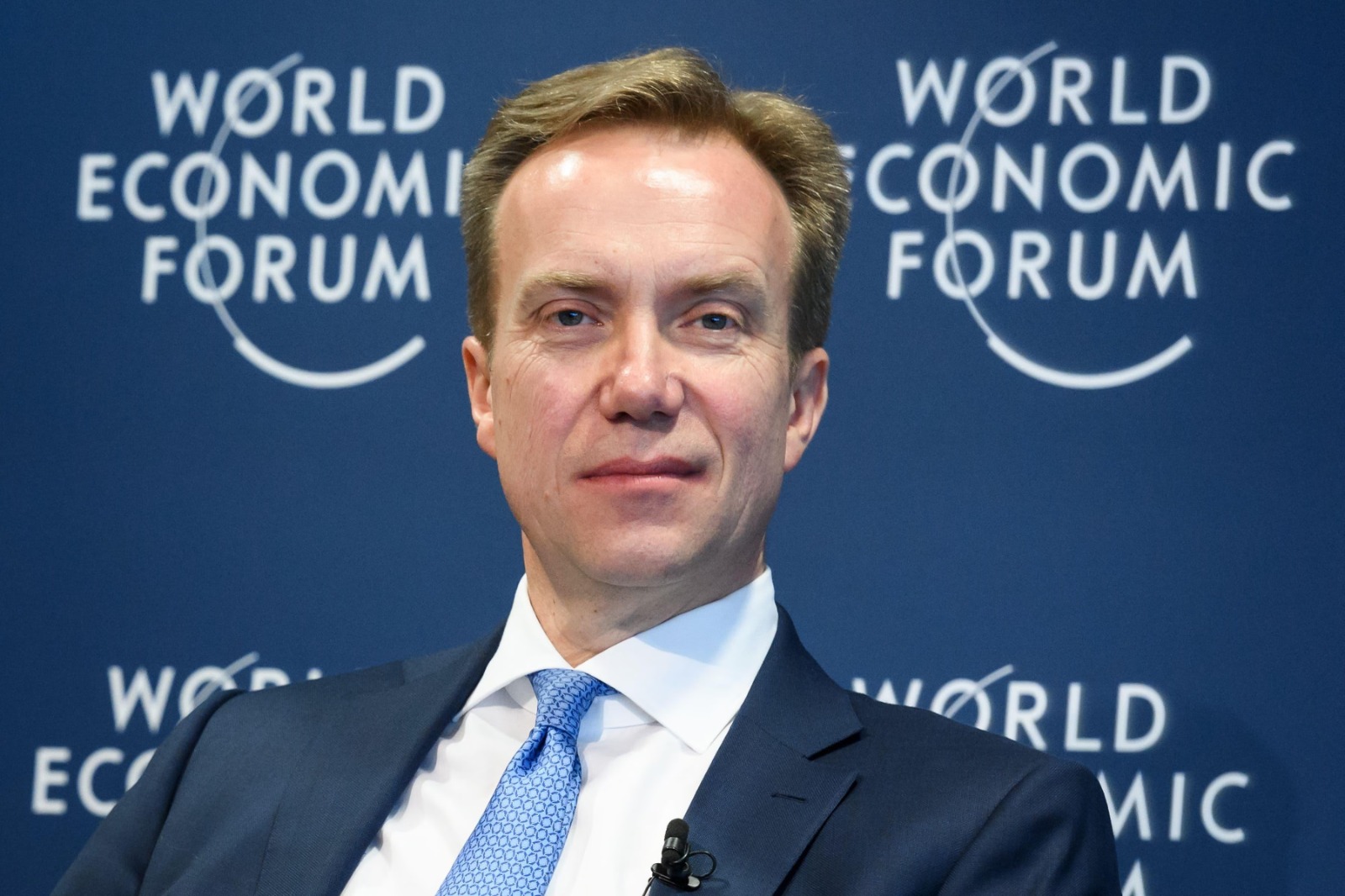
Red Sea crisis will lead to oil price hike in India : WEF President
DAVOS : The ongoing tensions in the Red Sea due to recurrent attacks on merchant ships by Yemen’s Houthi rebels have a negative impact on the global supply chain and would lead to a $10-20 increase in oil prices for oil-importing countries like India, which could have negative effects on its economy, World Economic Forum (WEF) President Borge Brende said.
In an exclusive interview to India Today TV/Business Today with News Director Rahul Kanwal, Brende stated that the closure of the Suez Canal would hurt the global supply chain and hoped that the Houthi attacks in the region would stop very soon.
He made the remarks as the 54th edition of the annual World Economic Forum (WEF) meeting is set to begin in the picturesque city of Davos in Switzerland.
During the interview, Brende highlighted that trade growth came down to 0.8 per cent last year compared to 3.4 per cent. He, however, expressed optimism that global trade will “pick up a bit” this year amid the Red Sea crisis.
“But it doesn’t take much to also have a negative impact on this if we close the Red Sea. The fact that even closing the Suez Canal for weeks will also have a very negative impact on the global supply chain. So, a lot is at stake. We also know that this has an impact on oil prices and for big oil-importing countries like, for example, India, where a $10-20 increase in oil prices will have very negative effects on the economy,” he said.
“So, I hope that this will not escalate further and that shipping can reconvene as usual in the Red Sea in a few days,” he said.
‘INDIAN ECONOMY TO GROW AT 8%’
Borde expressed optimism about the Indian economy and said it was expected to grow at 8 per cent this year. “We think, in the coming decade, we can be speaking about a $10 trillion economy, at least in the coming two decades,” he said.
Praising India for its growth story, the WEF chief said the country was growing in the digital economy twice as fast as the rest of the economy.
“India has been at the forefront due to the digital economy and the export of services. This is a very sweet spot for India. But, of course, reforms should have to continue in India. Reforms related to education, funding and reforms to tackle unnecessary red tape should continue. I feel there is an understanding of all these things in New Delhi,” Brende said.
‘LOOK FOR A BIGGER ROOM’
Acknowledging the rising global stature of India, Brende cited an instance where there was a “long waiting list” of Indian officials waiting to meet him in a room that could fit only “100 people”.
“We have a lot of Indian companies here. India is growing very fast. There’s a lot of interest in India. There is like a country strategy meeting on India where the three ministers that are here will conduct, and the Reserve Bank of India (RBI) Governor is here too. I was told by my team that it was oversubscribed after half an hour. So, there’s like a long waiting list,” he said.
“I think we can only fit 100 of them in the room. They are still waiting and they can’t get in and they are upset. So, I said, maybe we will have to look for a bigger room,” he chuckled.
ON ECONOMIC GROWTH, INDIA’S ECONOMY
Brende said the WEF projected a 2.9 per cent economic growth this year but was optimistic that it could go above 3 per cent soon.
“We should also acknowledge that a lot of economists expected a recession in the US. It’s the largest economy in the world that is 25 per cent of the GDP. There is no recession. It’s probably a soft landing. We’re seeing influence abating a bit. Interest rates will then go down,” he said.
“For India, I think if trade grows again and India gets a little bit more help from the global economy in 2025, I think, as I said, that India will be in a medium-term to long-term, a $10-trillion economy, provided that the reforms do continue,” he said.
On the upcoming elections in India, the US, the UK, Russia and the European Parliament, Brende said these electoral processes will have a “huge impact” on the world economic outlook in “this election year”.
‘COLLABORATION NEEDED’
Speaking about the theme of WEF 2024, which is about rebuilding trust in a fractured world, the WEF president stressed the need for global collaboration due to what he called a “clear trust deficit”.
“There is also a huge geopolitical competition. But even in a fractured fragmented world, we need to collaborate. Some of the most pressing challenges are global, for example, future pandemics, climate change and cyber attacks. We also know, for example, from the war in Gaza that we need to collaborate now, so this doesn’t escalate further,” he said.
Source : India Today
